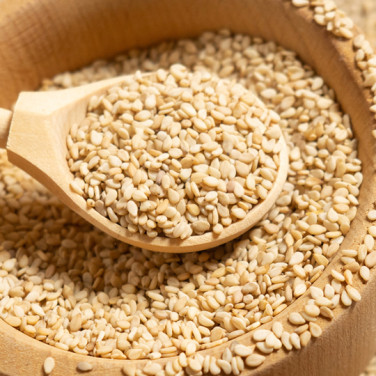FOOD
Can Dogs Eat Eggs? Health Benefits and Risks
페이지 정보
본문
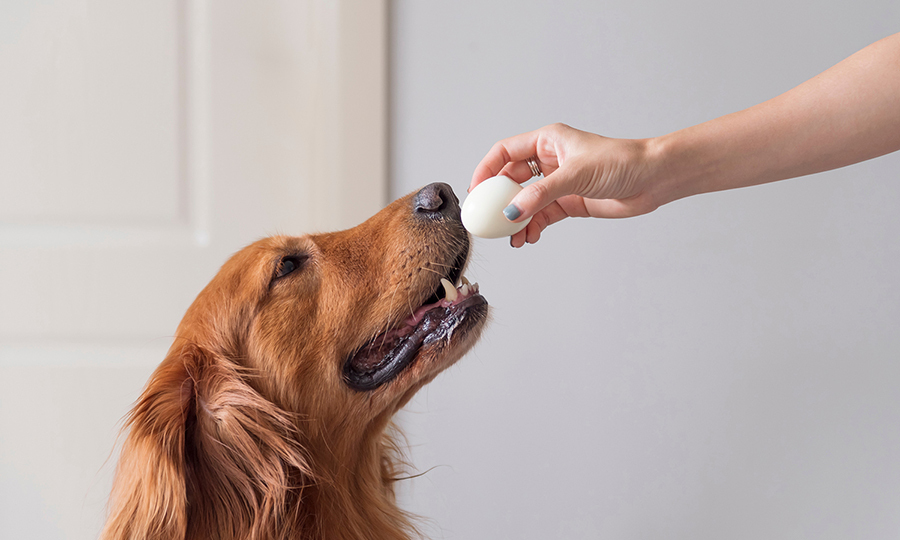
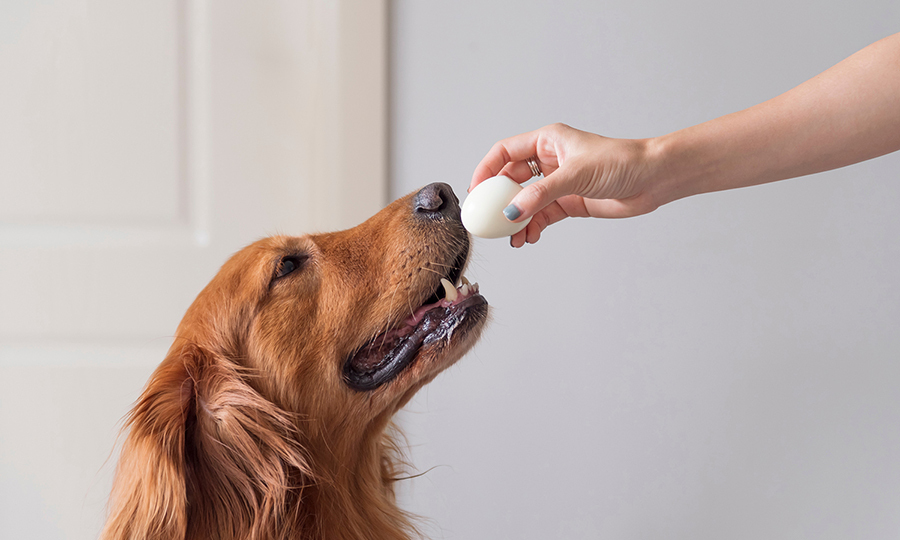
Can dogs eat eggs? YES!
Eggs are a great treat for puppies because they are both tasty and nutritious! They are rich in protein and contain a variety of vitamins and minerals that help keep your dog's skin and coat healthy. The whites, yolk, and shells are all nutritious, and it is best to serve them boiled, but raw is also viable with proper preparation.
What are the health benefits of eggs for dogs?
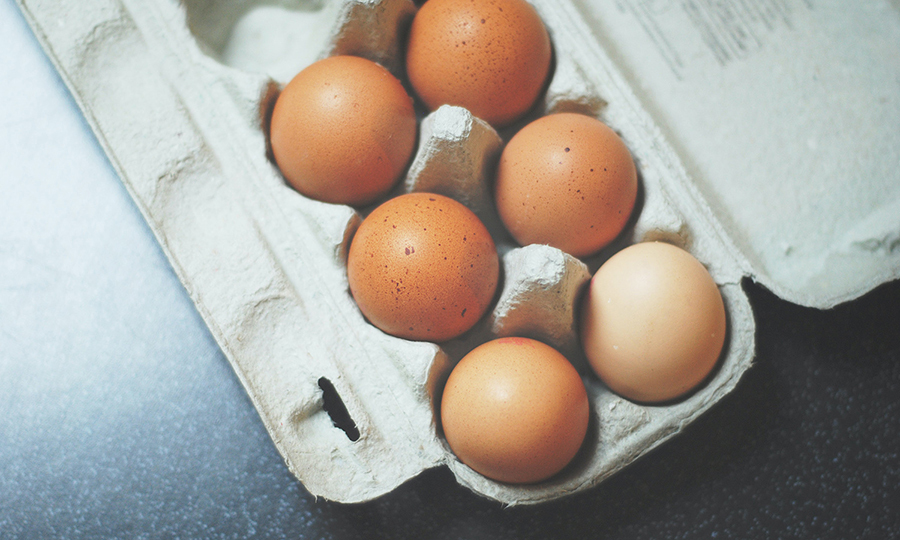
Key nutritional information on feeding eggs to dogs
Eggs are an excellent source of protein for dogs and are rich in nutrients such as iron, fatty acids, folic acid, riboflavin, selenium, vitamin A, and vitamin B12.
-
Protein
Protein is an essential nutrient for providing amino acids, promoting muscle growth, and producing energy.
-
Vitamins
- Vitamin A: Your pet's body converts beta-carotene into vitamin A, which strengthens the immune system and keeps skin, coat, and vision healthy.
- Riboflavin (Vitamin B2): Help dogs grow and maintain healthy coat quality.
- Vitamin B12: Together with folic acid, it plays an important role in the creation of red blood cells and DNA synthesis.
- Folic acid: Together with vitamin B12, it plays an important role in the production of red blood cells and DNA synthesis.
-
Minerals
- Iron: Supports the formation of red blood cells and hemoglobin. Hemoglobin carries oxygen throughout the body and generates energy.
- Selenium: Selenium is an important mineral that regulates thyroid function and supports the immune system.
Can dogs eat egg yolk?

Egg yolks are rich in fatty acids and vitamins, particularly those that help build and maintain cells in the body. They contain a variety of vitamins such as A, D, E, K, B1, B12, riboflavin, folic acid, niacin, and choline, which support metabolism, immunity, growth, and development. Despite being high in cholesterol, dogs do not have to worry about cholesterol like humans do.
Can dogs eat egg whites?
Egg whites are rich in essential amino acids that make up proteins, which are essential for building and maintaining muscle. However, they also contain a protein called avidin, which can lead to biotin deficiency. This is because avidin binds to and prevents the absorption of biotin, which is important for skin and cell regrowth, metabolism, and digestive function. However, when heated, avidin undergoes a structural change that makes it unable to bind to biotin. Egg yolks do contain enough biotin to balance out the avidin found in the whites, it is still considered to feed eggs heated and cooked.
Can dogs eat the eggshell membrane?
The eggshell membrane is a thin layer found on the inside of an eggshell. It is a rich source of collagen, glucosamine, and chondroitin and can help with joint problems.
How to safely feed eggs to dogs
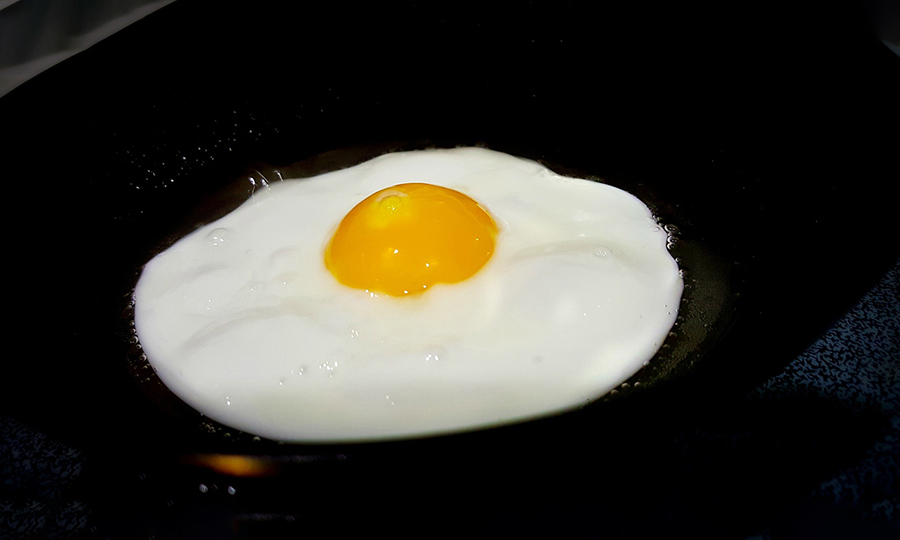
When giving your dog eggs, it is best to serve them cooked. They can be served in a variety of forms, such as air fried, scrambled, or hard-boiled. However, cooking should not involve the use of oil or butter or the addition of seasonings such as salt. It is recommended to cut the eggs into bite-sized pieces, as dogs can swallow them whole. They should be served cooled to avoid risk of getting burned.
How many eggs can a dog eat per day?
Chicken eggs should be given as a snack, rather than part of a regular diet, as it is recommended that dog treats do not exceed more than 10% of the recommended daily calorie intake. Each egg contains approximately 70 kcal, so it is suggested to give 1/3 of an egg to small dogs, 1/2 to 1 egg to medium-sized dogs, and no more than 1 egg per day even for large dogs.
Health risks and cautions to note when feeding eggs to dogs
Can dogs eat raw eggs?
If you consume raw eggs, you run the risk of contracting salmonella infection (salmonellosis), which can cause symptoms such as fever, vomiting, diarrhea, and coma. Furthermore, if eggs are stale or have become spoiled due to improper storage, they can lead to digestive problems caused by bacteria. The protein avidin, present in egg whites, can interfere with the absorption of biotin, resulting in biotin deficiency. However, cooking the eggs can cause a structural change in avidin, preventing it from hindering biotin absorption. Given the potential risks associated with consuming raw eggs, it is recommended to cook them and consume them for their potential health benefits.
What if my dog eats raw eggs?
It is recommended to watch for digestive problems, such as diarrhea or vomiting. If signs of digestive problems or lethargy occur, it is recommended that you visit a hospital for an examination, as there is a risk of food poisoning or Salmonella poisoning.
Can dogs eat eggshells?
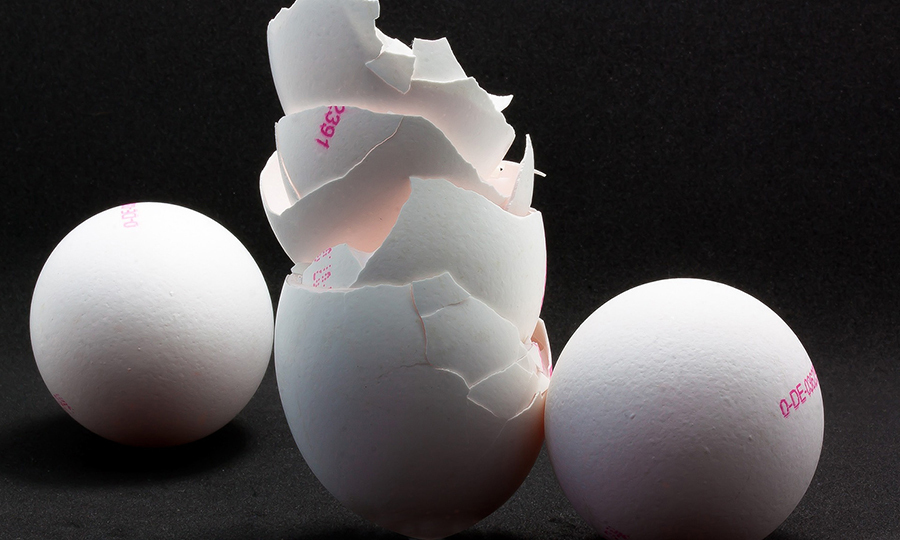
Egg shells are rich in calcium, but they should not be fed to dogs separately at home because they are difficult to digest. Instead, they can be included in feed or nutritional supplements, but only after undergoing a thorough processing process to turn them into powder. If your dog eats raw eggshells, the sharp edges can cause problems with the digestion process and there is also a risk of Salmonella. There are many other calcium supplements available that are more suitable for dogs, so it is not recommended to rely on eggshells as a source of calcium for your pet.
Can dogs eat quail eggs?
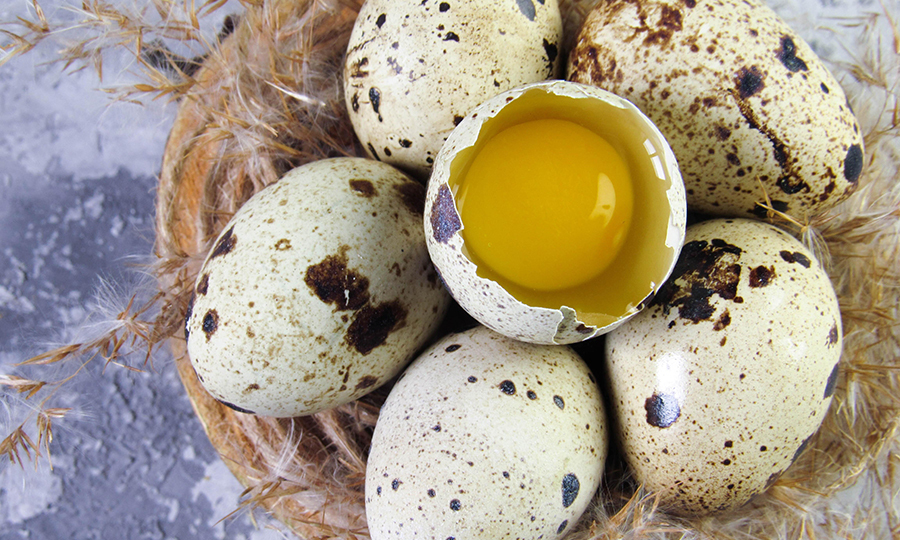
Quail eggs offer the same benefits as chicken eggs, but with a lower risk of salmonella due to the higher body temperature of quails compared to chickens. Therefore, it is considered safe to feed a dog quail eggs raw or cooked.
Feed in moderation
All snacks can cause health problems, such as weight gain if eaten in excess, so it is always recommended to feed them in moderation. To lower the risk of bacterial infection, it is best to obtain eggs from a reliable source, such as free-range or organic.
Food allergy
As with any other food, the first time feeding anything may cause an allergic reaction and cause intolerance. It is recommended to give a small amount of the first food to be tested and monitored for signs of allergy. If your puppy shows any signs of an allergy, it is recommended to stop feeding and contact your veterinarian immediately.
Signs of an allergic reaction to look out for:
- Skin problems: hives, facial swelling, and itchiness
- Digestive problems: vomiting and diarrhea
- Shortness of breath
What other foods can dogs eat safely?
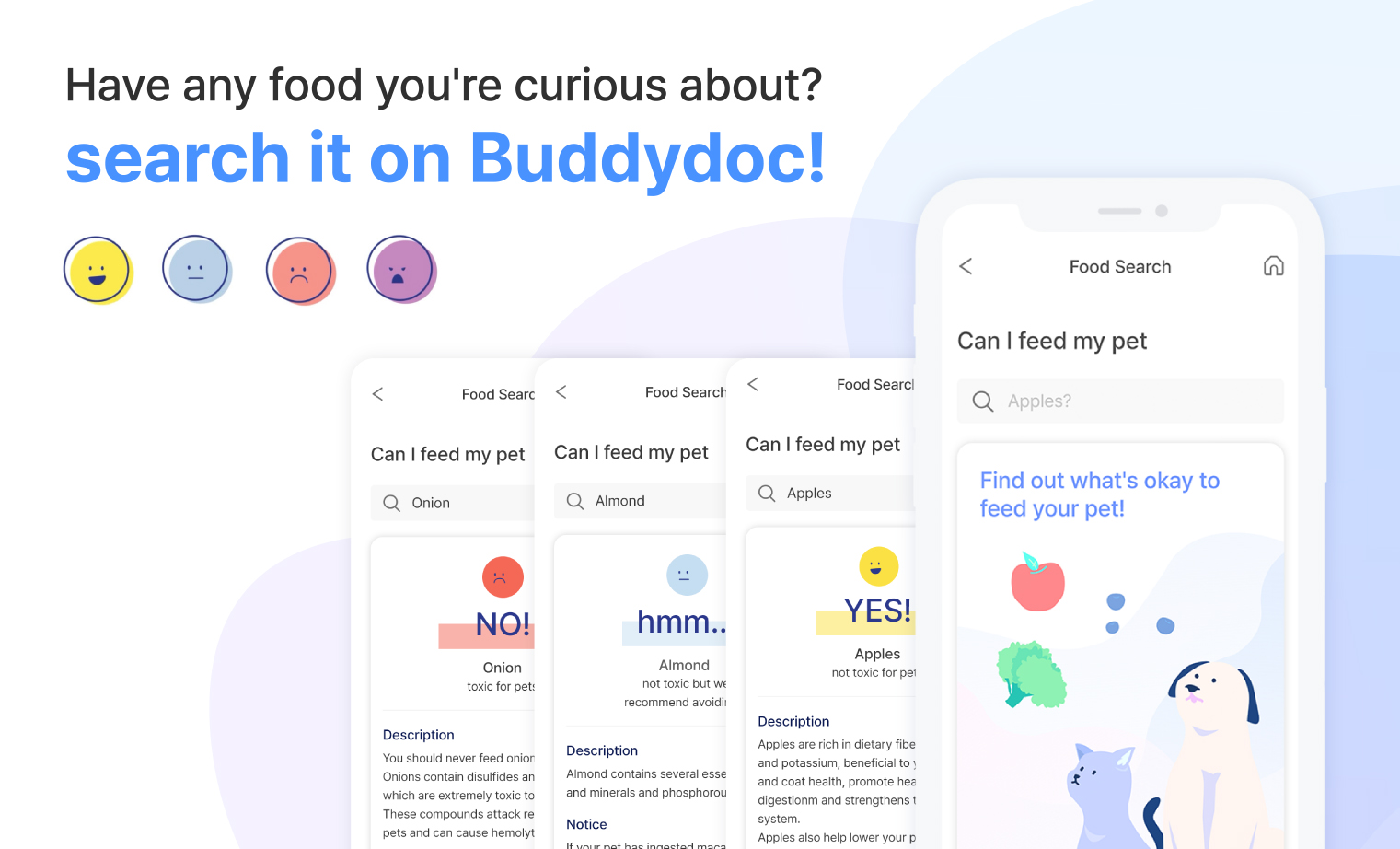
Does your dog also look up at you with those puppy dog eyes whenever you are snacking on something? You know foods like chocolates should not be shared with them but do you search the Internet every time if it’s okay to share a bite of whatever you are eating? The Buddydoc Food Dictionary provides information on hundreds of foods that we consume and informs you whether it is safe for them to consume and the nutritional benefits for your pet. If you're curious about other foods, try searching on Buddydoc!




